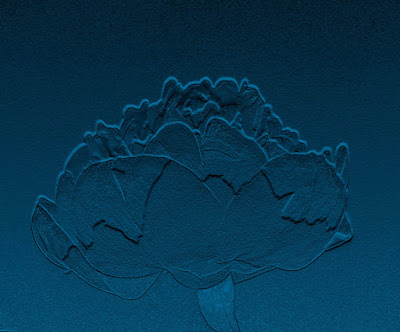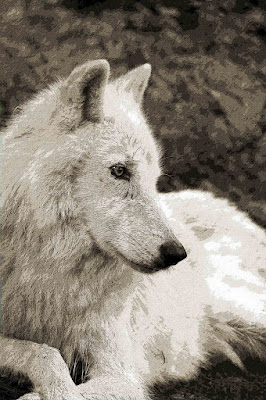 "What ... does it mean to love a place? We do fall in love with places, there is no doubt. The crest of a mountain, the childhood shelter behind the hedge, the rockwrack shore of the sea, the lilac in bloom by the bus stop--each of us has a place that makes us feel whole and happy and alive. Sometimes we fall in love with the entirety of these, the global home so beautiful from space, with its glowing blue skin and soft clouds. Loving a place is a way of feeling, connected and at peace. But loving a place is also a way of acting. Can we claim to love a place if we skim it for our own gain, or slash it and leave it to die? Just as in loving a person, loving a place means being kind to it, protecting it, caring about its well-being as much as your own."
"What ... does it mean to love a place? We do fall in love with places, there is no doubt. The crest of a mountain, the childhood shelter behind the hedge, the rockwrack shore of the sea, the lilac in bloom by the bus stop--each of us has a place that makes us feel whole and happy and alive. Sometimes we fall in love with the entirety of these, the global home so beautiful from space, with its glowing blue skin and soft clouds. Loving a place is a way of feeling, connected and at peace. But loving a place is also a way of acting. Can we claim to love a place if we skim it for our own gain, or slash it and leave it to die? Just as in loving a person, loving a place means being kind to it, protecting it, caring about its well-being as much as your own."Thursday, September 29, 2011
"In love with places"
 "What ... does it mean to love a place? We do fall in love with places, there is no doubt. The crest of a mountain, the childhood shelter behind the hedge, the rockwrack shore of the sea, the lilac in bloom by the bus stop--each of us has a place that makes us feel whole and happy and alive. Sometimes we fall in love with the entirety of these, the global home so beautiful from space, with its glowing blue skin and soft clouds. Loving a place is a way of feeling, connected and at peace. But loving a place is also a way of acting. Can we claim to love a place if we skim it for our own gain, or slash it and leave it to die? Just as in loving a person, loving a place means being kind to it, protecting it, caring about its well-being as much as your own."
"What ... does it mean to love a place? We do fall in love with places, there is no doubt. The crest of a mountain, the childhood shelter behind the hedge, the rockwrack shore of the sea, the lilac in bloom by the bus stop--each of us has a place that makes us feel whole and happy and alive. Sometimes we fall in love with the entirety of these, the global home so beautiful from space, with its glowing blue skin and soft clouds. Loving a place is a way of feeling, connected and at peace. But loving a place is also a way of acting. Can we claim to love a place if we skim it for our own gain, or slash it and leave it to die? Just as in loving a person, loving a place means being kind to it, protecting it, caring about its well-being as much as your own."Tuesday, September 27, 2011
"Choose one virtue."
 "To be the sort of person who helps move the world toward shared, sustainable flourishing will require a strong set of virtues:
"To be the sort of person who helps move the world toward shared, sustainable flourishing will require a strong set of virtues:"A sense of wonder, to perceive and value the extraordinary beauty and mystery of the thriving world.
"Compassion, to feel the suffering of both human and nonhuman animals caused by climate change and ecological collapse.
"Imagination, to envision new and sustainable ways to provide for human needs without plundering the planet.
"Independence of mind, to distinguish true from false, to distinguish real needs from created markets, to understand how to make good moral decisions under conditions of uncertainty.
"Integrity, to do what one thinks is right, even if it means making decisions that are radically different from the decisions one's friends and neighbors make, decisions contrary to what is well-advertised or easy.
"Justice, to honor the needs of other people and other species as highly as one's own, and to respect in others the rights one claims for oneself.
"Courage, to do what needs to be done even if the lonely odds are against you."
 "...Choose one virtue. Make a decision ... that embodies that virtue. Now choose another virtue. Make a decision that embodies both of them. Continue. Virtues are habits of the mind and heart. Habits are developed by practice, over time."
"...Choose one virtue. Make a decision ... that embodies that virtue. Now choose another virtue. Make a decision that embodies both of them. Continue. Virtues are habits of the mind and heart. Habits are developed by practice, over time.""You are what you do."
Thursday, September 8, 2011
Going "Widdershins"


 "...the fifty-thousand-year-long tale of humanity is the growing reach of Man's will over wild things, of taking wild things and turning them into more and more human things. It is the taming, the domestication, the homogenization of the world--and of Earthlings of all kinds. It is the steady, now overwhelming wave from wild things to humans and human-willed things.
"...the fifty-thousand-year-long tale of humanity is the growing reach of Man's will over wild things, of taking wild things and turning them into more and more human things. It is the taming, the domestication, the homogenization of the world--and of Earthlings of all kinds. It is the steady, now overwhelming wave from wild things to humans and human-willed things."The ethical challenge for humanity--as a species and as individuals--is to step back and let the being of wild things be, to go widdershins so that wild things and their self-willed Earth grows and man-willed parts become smaller.
"...do we have an obligation to future generations of all living things? The question is wrong-headed. It begins with the thought that we have the right to trash, ransack, plunder, and shrink the world and its wild things to mere stuff and gobble them up--unless someone can show us otherwise. It puts the burden of proof on those wild things, on that tomorrow, not on us today. That is unjust.
"Our asking should instead begin on the bedrock that we of course have an obligation to wild things of all species, today and tomorrow, to honor their intrinsic value and thus to act only in ways that keep whole the beauty, integrity, and stability of Earth. Those who want out of that obligation will have to fully show how it is okay to snuff life for short-term, selfish ends. This shifts the burden of proof in a strong and mindful way. Those who would shatter life will have to show in a deep, wide way why this careless, carefree, uncaring behavior is good. That will be hard--so hard--to do."
--Dave Foreman
Wednesday, September 7, 2011
What is "sacrifice"?
 "To 'sacrifice' is to make sacred. In the long history of devotion, people made sacrifices to honor the Most Worthy, giving up something of great value--a goat, a rooster, sometimes a son. It is exactly this renunciation of self-interest that brings a person into closer relation to the divine.
"To 'sacrifice' is to make sacred. In the long history of devotion, people made sacrifices to honor the Most Worthy, giving up something of great value--a goat, a rooster, sometimes a son. It is exactly this renunciation of self-interest that brings a person into closer relation to the divine."So a better way to think about sacrifice is to ask, What ways of acting will reduce my fixation on self-gratification, and so bring me into closer relation with what is Good-in-itself, the Earth, the unfolding of life?"
--Kathleen Dean Moore and Michael P. Nelson

As found in Moral Ground: Ethical Action for a Planet in Peril. (Trinity University Press, 2010)
"Dinosaur Slime"
 "The term 'fossil fuels' is not a metaphor or a simile. In the geological sense, it's over. The internal combustion engine is so twentieth-century. Now we can either shift away from a carbon-based economy, or find another place to live. Imagine it: we raised you on a lie. Everything you plug in, turn on, or drive, the out-of-season foods you eat, the music in your ears. We gave you this world and promised you could keep it running on a fossil substance. Dinosaur slime, and it's running out. The geologists only disagree on how much is left, and the climate scientists are now saying they're sorry, but that's not even the point. We won't get time to use it all. To stabilize the floods and firestorms, we'll have to reduce our carbon emissions by 80 percent, within a decade.
"The term 'fossil fuels' is not a metaphor or a simile. In the geological sense, it's over. The internal combustion engine is so twentieth-century. Now we can either shift away from a carbon-based economy, or find another place to live. Imagine it: we raised you on a lie. Everything you plug in, turn on, or drive, the out-of-season foods you eat, the music in your ears. We gave you this world and promised you could keep it running on a fossil substance. Dinosaur slime, and it's running out. The geologists only disagree on how much is left, and the climate scientists are now saying they're sorry, but that's not even the point. We won't get time to use it all. To stabilize the floods and firestorms, we'll have to reduce our carbon emissions by 80 percent, within a decade."Heaven help us get our minds around that."
--Barbara Kingsolver
 As found in Moral Ground: Ethical Action for a Planet in Peril, edited by Kathleen Dean Moore and Michael P. Nelson. (Trinity University Press, 2010)
As found in Moral Ground: Ethical Action for a Planet in Peril, edited by Kathleen Dean Moore and Michael P. Nelson. (Trinity University Press, 2010)Thursday, September 1, 2011
"One Living Creature"
 "Constantly think of the Universe as one living creature, embracing one being and one soul; how all is absorbed into the one consciousness of this living creature; how it compasses all things with a single purpose, and how all things work together to cause all that comes to pass, and their wonderful web and texture."
"Constantly think of the Universe as one living creature, embracing one being and one soul; how all is absorbed into the one consciousness of this living creature; how it compasses all things with a single purpose, and how all things work together to cause all that comes to pass, and their wonderful web and texture."--Marcus Aurelius

"Leave each day behind..."
Subscribe to:
Comments (Atom)














